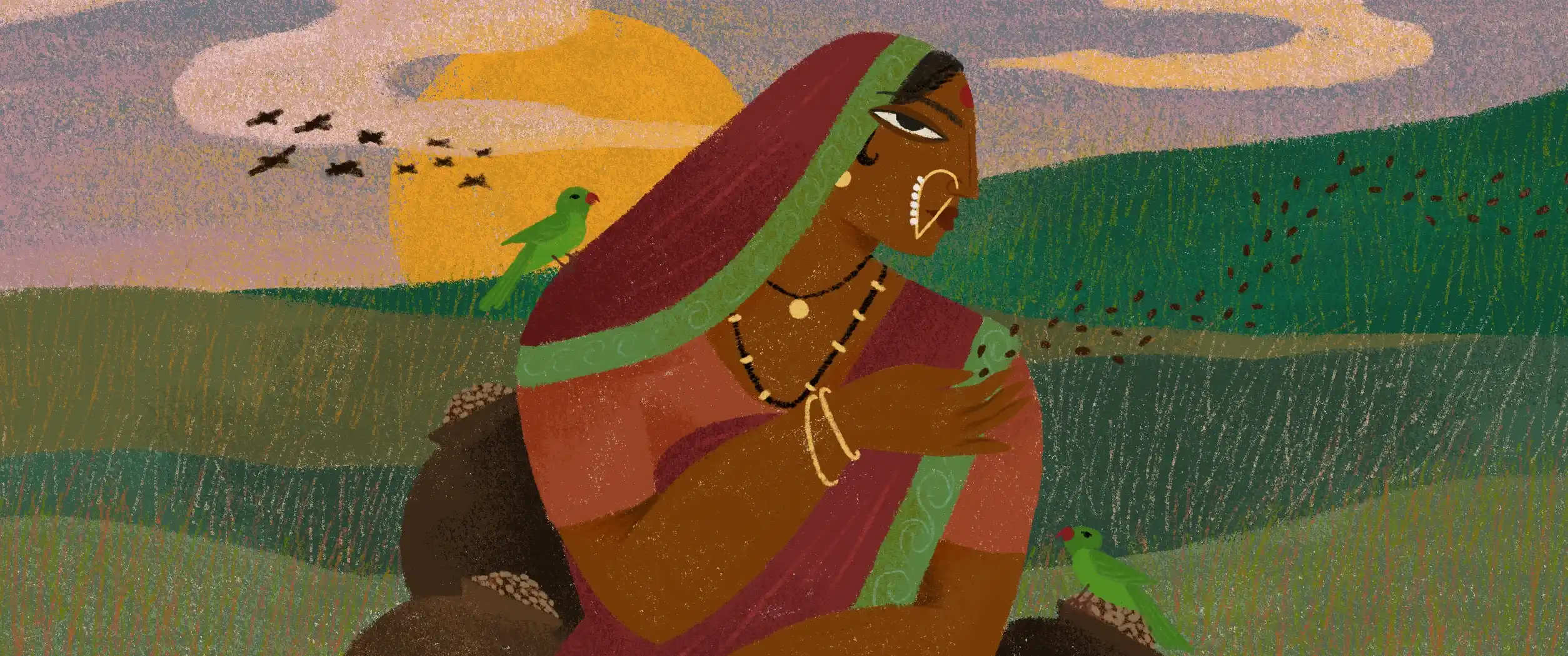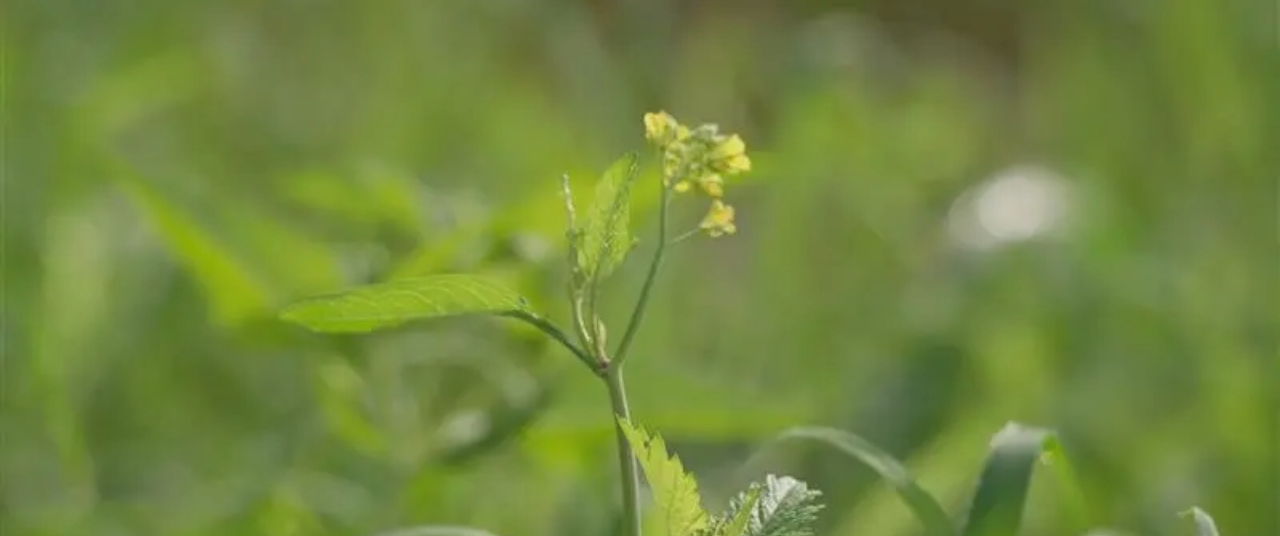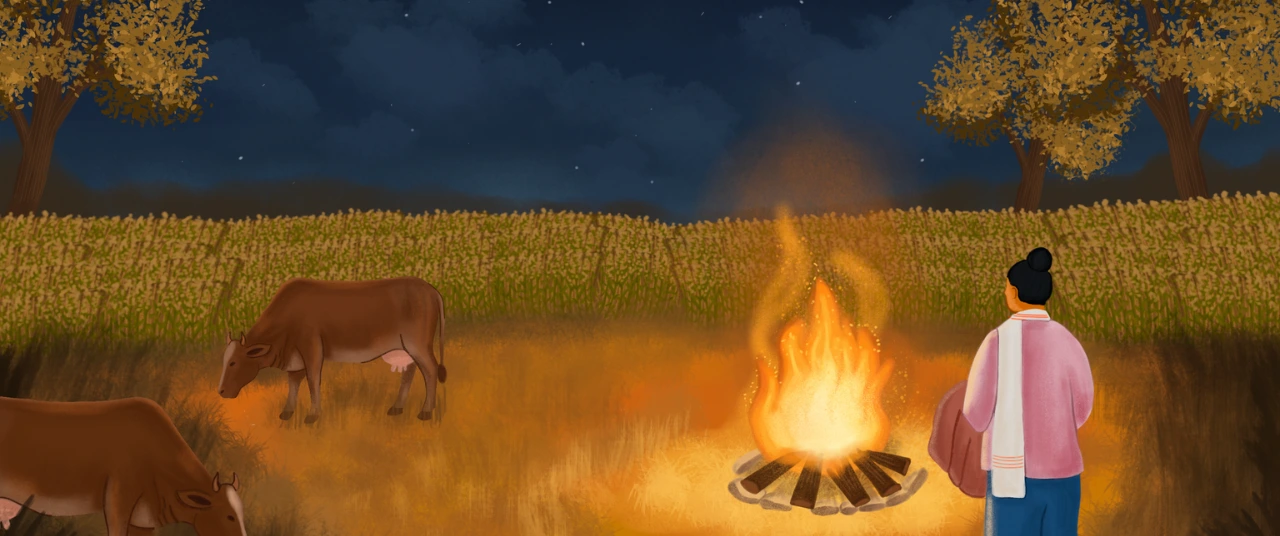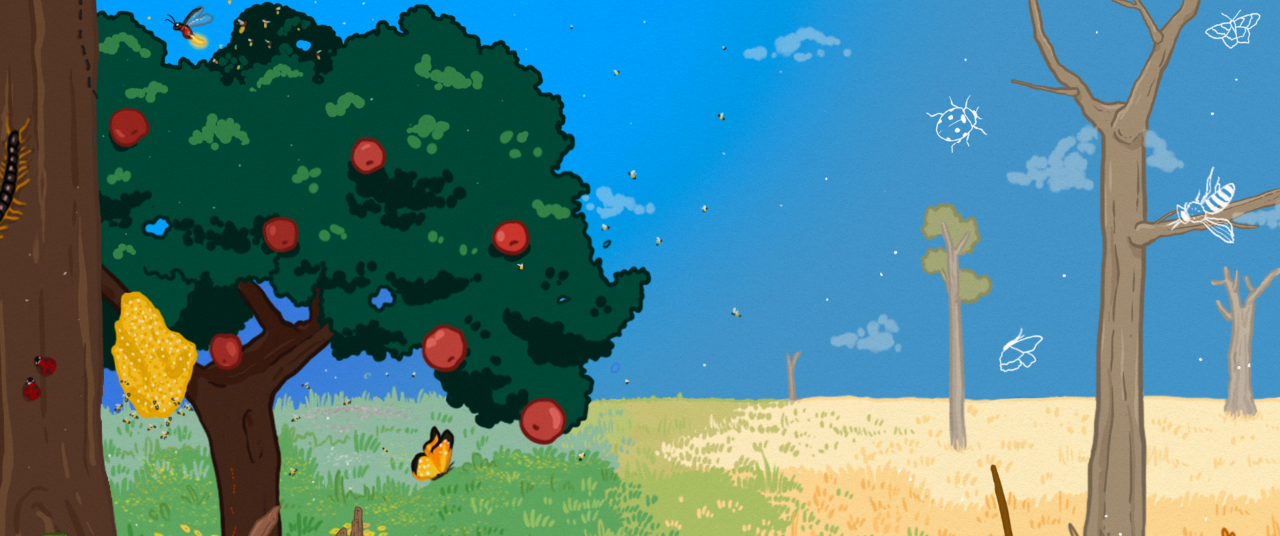The women-run farm grows 80+ crops on one acre






We often don't know who grows our vegetables and fruits, or where and how they are grown. Kai Thota, which literally means kitchen garden, is a backyard farm near Bengaluru working to change that.
The one-acre farm, managed by 24 women from the Mayuri Shakti organisation, follows a community-supported agriculture (CSA) or crop-sharing model. They deliver fresh greens to urban Bengaluru, cutting out middlemen and simplifying the conventional supply chain.
The farm is located in Ragihalli, less than 30 kilometres from central Bengaluru. The area, a mix of scrubland and dry deciduous forest in the valleys, has been marked as an eco-sensitive zone (ESZ). it's under constant pressure from urbanisation, impacting its resources and forest management. "When the forest department takes over the land, it becomes really hard for farmers to make a living," said Geetha, an expert farmer who has been with Kai Thota since day one at a discussion at Bangalore International Centre (BIC). Since these locals farm organically, their income is lower than in neighbouring panchayats. But the women, along with the Ragihalli panchayat, prioritise quality over quantity, even though market demands suggest otherwise.
The people of Ragihalli rely heavily on agriculture. However, limited farming space and conflicts with the forest department have driven many to seek work in Bengaluru. Before turning to farming, some women worked in factories in Jigani and Anekal, stayed at home, or found job in a local bakery.
Biodiversity and community farming
What are the farmers growing? Pretty much everything. In total, 80 varieties of fruits and vegetables thrive on this land. These include taro (arbi), bottle gourd, amaranth, Malabar spinach, papaya, cauliflower, brinjals, knol-khol, onions, white yam, okra, mint, sweet potato, turmeric, gongura, radish, spring onions, snake gourd, carrots, chillies, doddapatre, curry leaves, lemongrass, shallots, ash gourd, and perennial coriander. The biodiversity on each of the 31 plots creates its own microclimate.
Despite the labour-intensive work compared to monocropping, the women find the rewards fulfilling. The women also educate customers by adding local weeds to their baskets and sharing cooking tips. Many of these weeds are highly nutritious, and this effort spreads awareness about edible weeds while showcasing the local women's expertise.
People who destroy ecosystems act collectively, so working alone isn’t enough.
Nikhil Shenoy, a member of Kai Thota, said the goal is for city dwellers to learn how to incorporate these plants into their diets. “These grow in Bengaluru too, but we don’t know about them,” he added.
Shenoy, trained as a mechanical engineer, eventually realised his passion for agriculture. He spent around five years with MKSS in Rajasthan, practising farming in water-scarce regions, before coming to Bengaluru.
“When you start growing for customers, there's a different kind of pressure to deliver–one that doesn’t exist when you’re just growing for yourself.”
He believes organic farming is part of a larger philosophy where you work within the system, not as a lone individual. "People who destroy ecosystems act collectively, so working alone isn’t enough."
{{marquee}}
Autonomy and sustainable farming
The women typically work from 9 am to 1 pm, marking their attendance daily. Along with managing the plots, they maintain a nursery, eliminating the need to travel 40 kilometres to Chandapura for saplings. The goal is to foster their independence and autonomy.
Currently, they're rebuilding the soil beds to prevent water stagnation during the rains. "For the women, it’s a new experience; they’re learning, and so are we," said Shenoy.

Beyond giving them ownership, the aim is to help them understand that being in an ecologically sensitive zone brings advantages, like biodiversity. Shenoy recalled a snail infestation during the rainy season, but birds quickly dealt with it. "If this had happened in a city, the farmer would’ve had to use external inputs to control the snails," he pointed out.
Natural solutions
When the women noticed an increase in fruit flies, they made a fruit fly trap. “Once you have the problem, you think of a solution,” said Shenoy. “Now we’re dealing with rats. We’ll see if nature resolves it; otherwise, we’ll figure something out.”

They also prepare a popular organic insect repellent called Dashaparni, made from a mix of ten leaves.
The Ragihalli panchayat is surrounded on all sides by Bannerghatta National Park, the only corridor for elephants to move between the Western and Eastern Ghats.
"Ragi and paddy attract them because they’re more nutritious than what’s available in the forest," said Nishant Srinivasaiah in a Land Body Ecologies discussion. The farm is solar-fenced to protect the plants and produce from marauding animals.

Scaling sustainable agriculture initiatives
Kai Thota’s vision follows a three-fold plan. The first step is the current model. Next, they aim to scale it to an organisational level, where IT companies can provide fresh greens to their employees. The third model will involve larger-scale planting.
"We can implement a vegetable basket CSA where people can either come and pick their own harvest in any combination or have it delivered," Shenoy said. They also want to introduce a nutri-garden programme for schools and colleges.
Through the government’s NREGA scheme, the school or panchayat would provide land and labour, while the agriculture department would supply drip irrigation. Children would get involved in sowing and weeding activities. "Right now, D1 and D2 plots operate like that," said Shenoy.
Abheek, an alternative learning school in Gottigere, has subscribed to two plots. Every Wednesday, the children come from 10 am to 1 pm to help, followed by a one-hour class exploring and understanding the area. The group’s progress is visible in the land, the way they share knowledge, and their efforts to restore lost food diversity.
{{quiz}}
(Image Credits: Tasmia A)
Explore other topics
References

How many varieties of fruits and vegetables are the women at Kai Thota growing?


































.png)